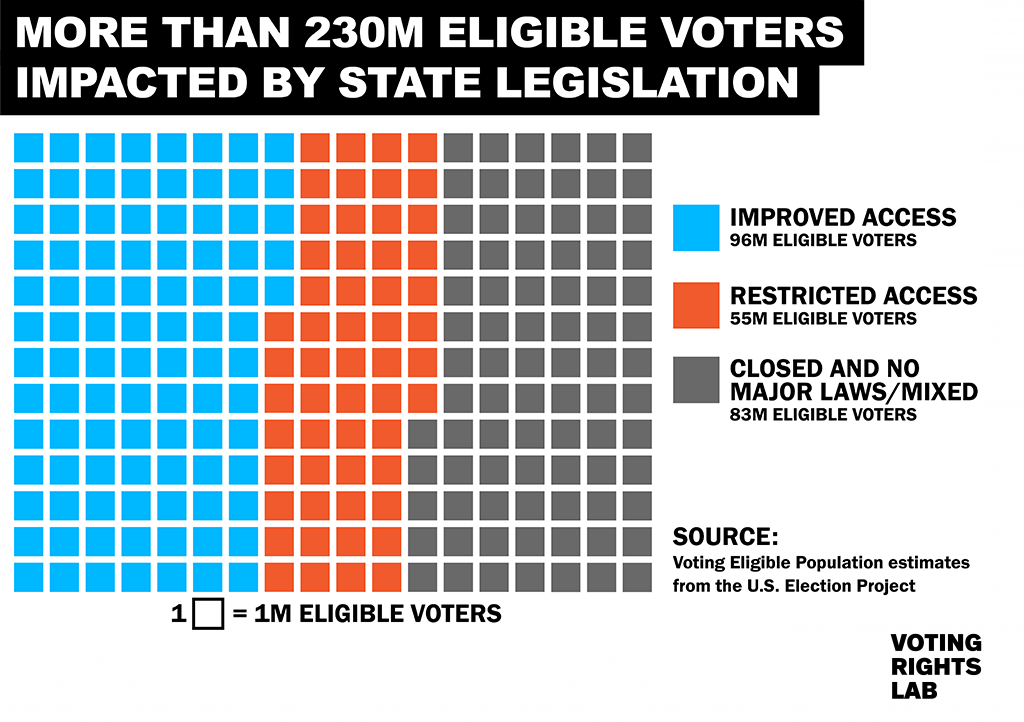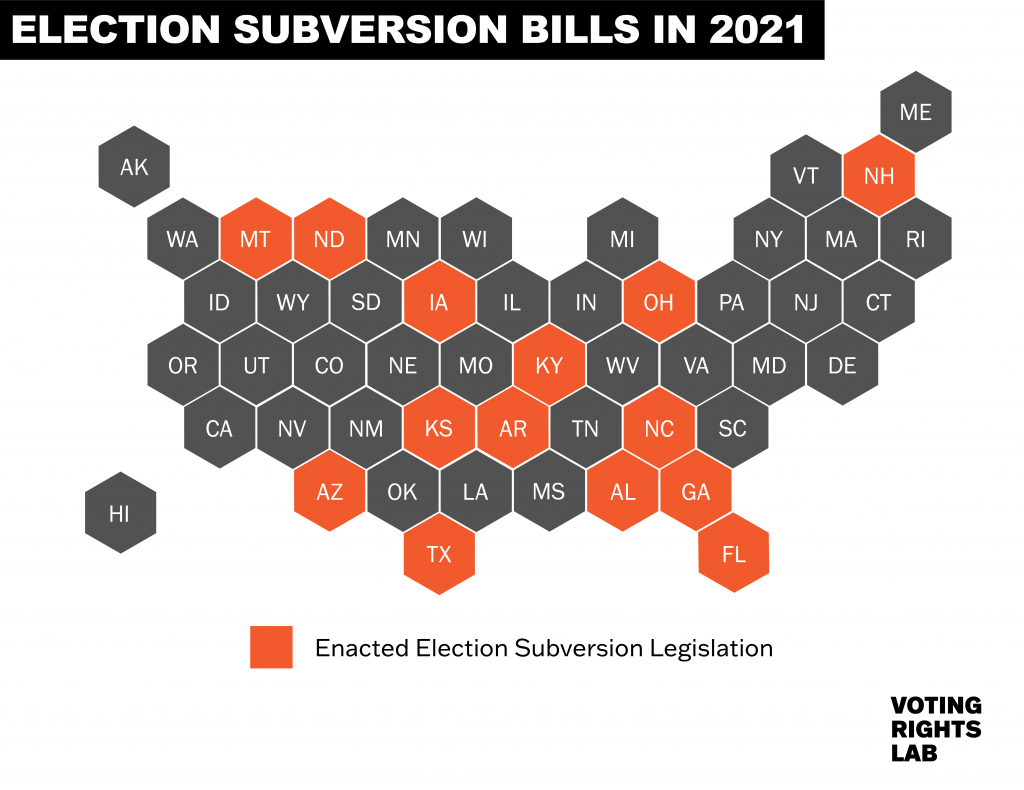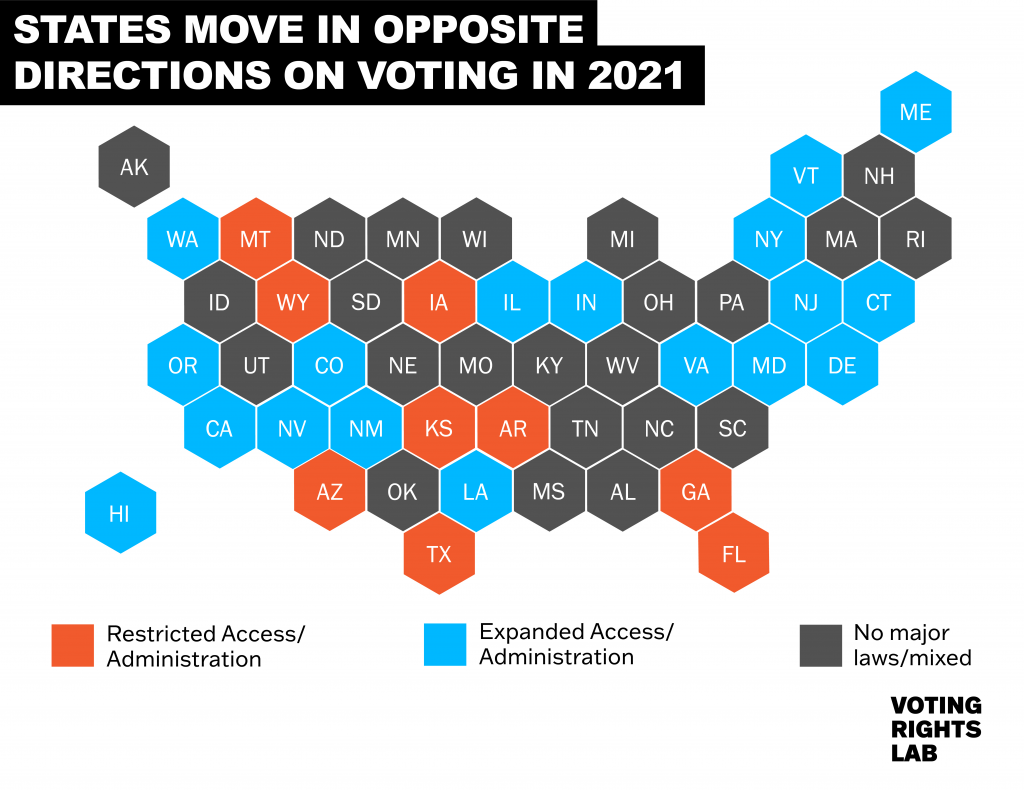In “Showdown 2022: The State of State Election Law – and the Fights Ahead,” we take a comprehensive look at where states landed on election-related policies by the end of 2021 – and forecast key issues that are already emerging in 2022 state legislative sessions.
This new research from the team at Voting Rights Lab highlights escalating efforts by some state legislators to enshrine policies allowing partisans to subvert the will of the voters in state law, including in several states anticipated to be 2024 election battlegrounds.
“In 2022, state legislation creating a pathway to subvert the will of the people is on the rise,” said Megan Lewis, executive director and co-founder of the Voting Rights Lab. “Whether it’s criminalizing local election officials or attempting to overturn the certified 2020 results, efforts by politicians to interfere in our elections for their political gain pose an urgent threat to our democracy. Voters pick our leaders — not the other way around — no one, no matter how popular or powerful, should be able to silence America’s voters.”
While the threat of election subversion looms, despite the headlines, 2021 was not defined by voting restrictions — in fact, voting rights advocates succeeded in advancing policies that expanded ballot access in red and blue states alike. Whether these were policies related to early voting, mail voting, restoring the rights of the previously disenfranchised, or strengthening our system to ensure it is more modern, transparent, and trustworthy, significant progress was made impacting millions of voters.

According to Voting Rights Lab’s research, as of February 10th, renewed election subversion efforts have taken a variety of forms in 2022:
- Problematic reviews of election results. There are currently 62 bills active in 22 states that would require unnecessary, costly, often partisan reviews of election results.
- Criminalization of election officials. There are currently 50 bills in 18 states that penalize election administrators in problematic ways.
- Partisan power grabs. Thirty-five bills in 14 states are legislative power grabs – efforts by state legislatures to give themselves a role in running elections and counting votes.
- Bans on electronic tabulators. Five states have introduced legislation prohibiting election officials from using electronic tabulators, instead forcing them to count all ballots by hand.

By Voting Rights Lab’s counts, in 2021:
- 27 states enacted legislation to expand and improve mail voting, while 13 states enacted legislation restricting it;
- 20 states enacted legislation improving voter registration, while 5 states imposed new registration barriers;
- 16 states enacted legislation shifting election authority, which in many cases could make the administration of elections more partisan;
- 15 states created, expanded, or improved in-person early voting, while 1 state restricted it;
- 14 states created or expanded election-related crimes with potentially suppressive effects;
- 10 states allowed election officials to begin processing mail ballots earlier, while no states cut back pre-processing time;
- 7 states imposed new or tougher voter ID laws, while 2 states took action to make their voter ID laws less restrictive;
- 7 states codified processes to ensure voters are notified of problems with their ballots and provided an opportunity to resolve the issue, while no states rolled these processes back;
- 9 states passed laws to create, facilitate, or improve the accessibility of ballot tracking tools for voters, while no states have done the reverse; and
- 8 states expanded voting eligibility for or improved access for citizens with past felony convictions (or paved the way for voters to approve such a law), while no states did the reverse.
Download the full report from Voting Rights Lab here.
